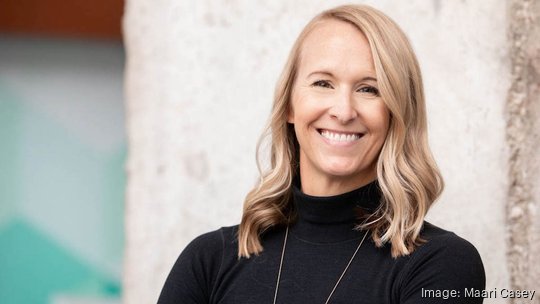
A Durham startup began with a holiday party and a savings account 12 years ago. Today, it’s a cross between a creative agency and a contract staffing firm, showing companies big and small that productivity doesn’t have to equal a 9-to-5 job.
Designer turned entrepreneur Maari Casey started what would become Uncompany with $4,000 in savings. She built a website and, for the first year, “everything I made was put back into the business.” Now It’s a revenue-generating network of more than 2,000 freelancers helping companies build what Casey calls a “flexible workforce.”
From freelancing to entrepreneurship
Casey started her career in advertising and design, working freelancing around the country before moving to the Triangle and taking a job with creative agency McKinney in Durham in 2005.
“But the type of work, the pace of work … it wasn’t working with the lifestyle I wanted outside of work,” she said.
So in 2009, she jumped back into freelance – and quickly realized she wasn’t alone.
“As I was doing it, I was like, there’s just so many people out there. … It was very decentralized,” she said. “There was nothing connecting people or opportunities.”
As she was restarting her journey into freelance, others were just starting theirs – some due to layoffs, others who, like Casey, wanted a change. And knowing Casey had been there, they reached out “with this panic look on their face.”
“I would help them,” she said.
At the same time, seasoned freelancers were opining. Casey remembers nearly a decade ago sitting in a group “complaining about how corporate America had these amazing holiday parties.”
So she decided to organize one, an “uncompany” holiday party. And 250 people showed up.
“I thought, this is real proof that there’s a community there that needs to be organized,” Casey said. So that’s how Uncompany began, initially as a community – both to help connect and educate freelancers.
The startup
Overtime it became a tech-centralized startup that could manage the process, providing remote freelancers, embedded freelancers and freelance teams for companies looking for flexible staffing. Uncompany can build a potential talent pool for a client’s project. The client, through the software, has direct access to the pool. Uncompany manages the back-end, from billing to taxes to insurance requirements. It collects a fee from the client – not the freelancers.
By operating lean – the company has two full-time employees with plans to hire a third – Uncompany has been revenue positive since year one, Casey said. Most years the company has doubled its revenue, leaning into automation “so we can do a larger book of business, but with less fixed costs.”
Today, the Uncompany pool is nearly 2,500 freelancers.
Casey said the use of “flexible workers” can help companies protect full-time employees. "When things happen, you can scale back your flexible staff and protect the jobs of your full-timers," she said.
She explains it as having “the flexibility of freelancing but the continuity of a regular team.”
Casey said interest in freelancing is picking up – particularly as a number of high-profile layoff rounds have been announced.
Casey said fear of the unknown is common – “that financial fear, am I going to be able to provide for myself?” – and so is the question of “who am I now,” particularly for those transitioning out of the corporate world, which often gives people a sense of identity.
But Casey said freelancing doesn’t have to follow one set model – it can be a temporary way to get your foot in the door of a new opportunity.
Her advice for those thinking about jumping off the freelancing cliff? Keep an open mind and leverage the network you’ve already created.